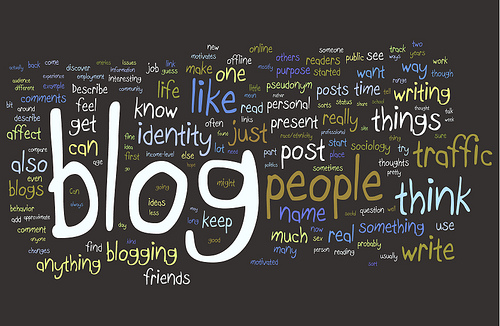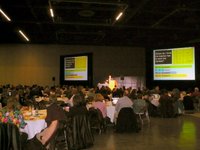Greg Bell, a fellow jazz-loving friend and blogger recently tagged me to post “Five Reasons Why I Blog” – a meme that circulating around the blog world. Here’s my thoughts and thanks to Greg for making me do this.
1. Blogs compensate for my lack of originality. They allow me to easily synthesize content from different sources and present it in a new context. That why I call my blog Copy / Paste. As W. Somserset Maugham said, “…Quotation…is a serviceable substitute for wit.” (See, I borrowed again. )
2. Blogs are learning tools. With new technologies we can be creators and consumers of content. It’s time to bring teaching and learning into the 21st century.
3. Blogs connect people. I recently ran a workshop in Portland OR for the Oregon Dept of Education. It was a big group (350) and I wanted to engage their thinking and comments. In addition to using an audience response system, I created a workshop blog. Participants took a survey at the blog in advance to help shape the agenda. Their pre-workshop posts became part of my presentation. (with citation, of course). We held the workshop in a WiFi enabled convention center and attendees read and posted comments during the presentation.
4. Blogs are easy. I’ve had websites at edteck.com and peterpappas.com for nearly 10 years. They’re created with FrontPage (sorry I never learned how to write in html.) Building them was far more work than blogging.
5. Blogs are fluid. I don’t know CSS, so making a style change at my two other domains requires me to edit every page. Blogs compensate for the thin veneer of understanding I have of technology. I recently made a new header for this blog. One edit – shows up on every page.
Since this meme is set up like a chain letter here’s where I tag other bloggers – I’ve picked some educational bloggers in various stages of their blogging career. Your turn David, Bob, Patrick, Nancy, Julie and Pat
Image credit flickr/Kristina B



